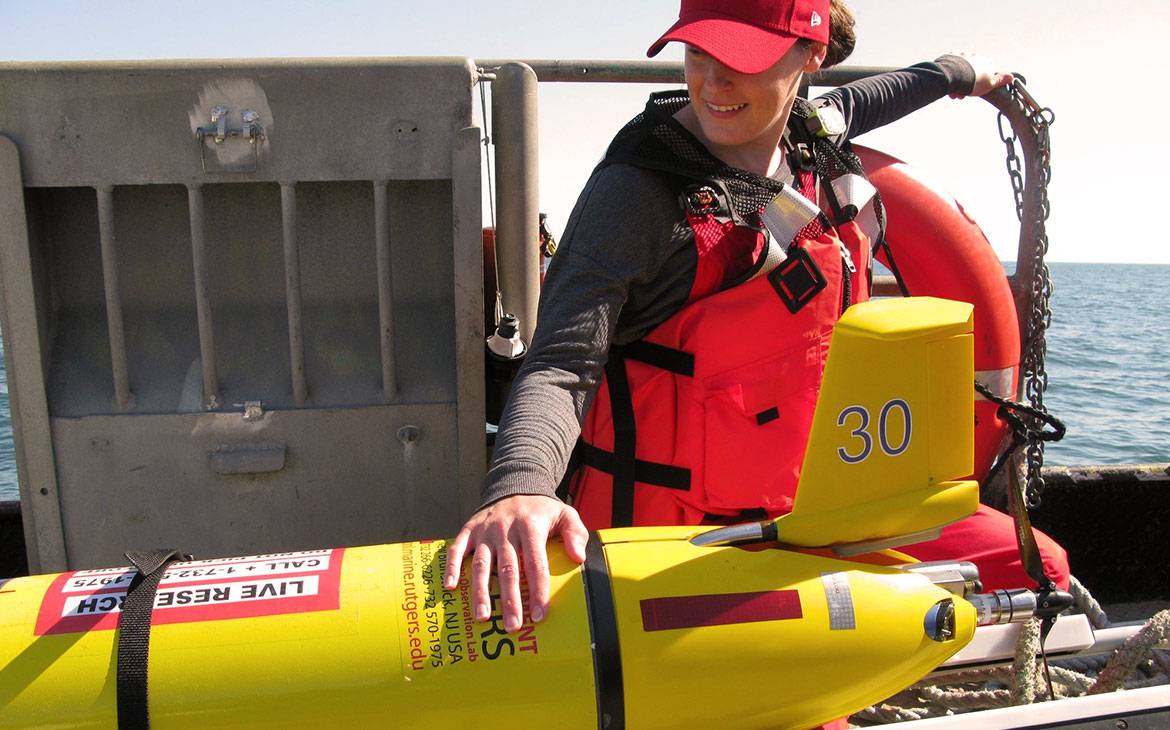Optimizing Ocean Acidification Observations for Model Parameterization in the Coupled Slope Water System of the U.S. Northeast Large Marine Ecosystem
Lead by Grace Saba, Rutgers University
The U.S. Northeast Shelf Large Marine Ecosystem supports some of the nation’s most economically valuable coastal fisheries, and most of this revenue comes from shellfish that are sensitive to ocean acidification (OA). This research team, led by Dr. Saba at Rutgers, plans to add seasonal deployments of underwater gliders equipped with sensors, including newly developed pH sensors,to understand how the ocean chemistry in this region varies on seasonal timescales relevant to organism ecologies and life histories. They also plan to improve existing regional sampling with additional carbonate chemistry measurements on other platforms in several key locations, and compiling and integrating this new information with existing OA assets. The researchers will then apply these data to an existing ocean ecosystem/biogeochemical (BGC) model to explore how carbonate chemistry is changing on the Northeast Shelf. The model will then be used to test hypotheses focused on the drivers of OA and identify locations are for long term OA monitoring.

